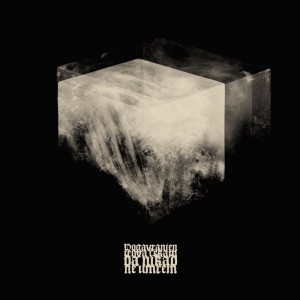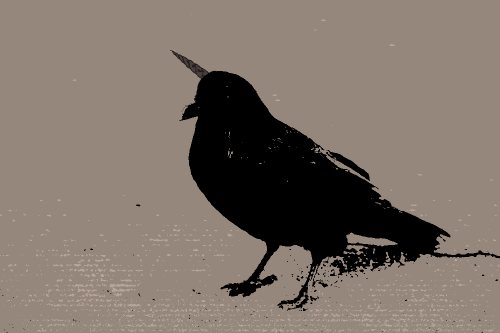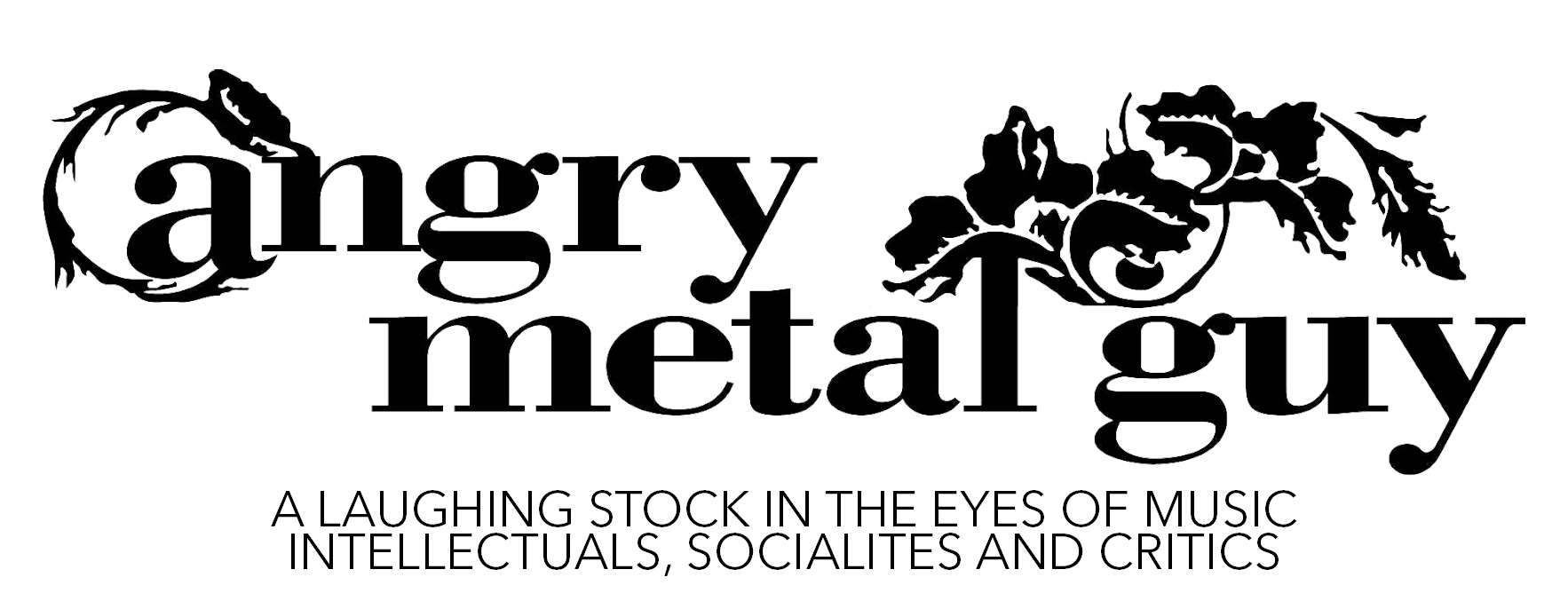 I don’t often get a chance to write about Croatian metal bands or, to be exact, I don’t often feel like writing about Croatian metal bands. There’s barely anything to call a “metal scene” in my homeland, with most acts birthed alone and lonely into a generic and photocopied existence, only to disappear in a flash of insignificance. Suffice to say that during the last 25 odd years since the country’s declaration of independence, there were only a few bands worth mentioning in the same breath with their international stylistic brethren (Ashes You Leave, Umor, Death of Folk, Infernal Tenebra). Imagine my elation, then, when something as good as Pogavranjen’s third LP, Jedva čekam da nikad ne umrem,1 came along. Curiously composed and competently played avant-garde black metal that is not merely the fruit of derivative rehashing? Yes, please!
I don’t often get a chance to write about Croatian metal bands or, to be exact, I don’t often feel like writing about Croatian metal bands. There’s barely anything to call a “metal scene” in my homeland, with most acts birthed alone and lonely into a generic and photocopied existence, only to disappear in a flash of insignificance. Suffice to say that during the last 25 odd years since the country’s declaration of independence, there were only a few bands worth mentioning in the same breath with their international stylistic brethren (Ashes You Leave, Umor, Death of Folk, Infernal Tenebra). Imagine my elation, then, when something as good as Pogavranjen’s third LP, Jedva čekam da nikad ne umrem,1 came along. Curiously composed and competently played avant-garde black metal that is not merely the fruit of derivative rehashing? Yes, please!
A berserking, space-and-psych-rock-gone-free-improv short called “Keres” opens the ceremonies and blossoms with the sort of uninhibited chaos that could only have been born out of a sense of inert rage and futile rebellion. Yet, this is only a diversion, a musical misnomer. Suddenly, the pandemonium subsides and gives way to introverted musings imbued with solemn and brooding passages. The music is now repetitive and droning, propelled by circling, polyrhythmic drumming. Whirlwinds of clean guitars and an infinitude of abstract electronic effects and synths create a constantly shifting, sinister tapestry, while negative spaces are filled with layered vocals that narrate lyrics with thespian poignancy. It’s obvious now: with their desolate and bleak sides even more accentuated, Pogavranjen have stepped out of the shade of black metal that covered their earlier releases and created a new world for themselves. A blessing and a curse.
But Pogavranjen’s downtempo world is not a completely original creation. Notes, harmonies, and structures are haunted by ideas of Virus, Ved Buens Ende, Manes, and Dødheimsgard. Fractured avant-garde tendencies like those cherished by Chaos Echœs linger in the mist. The band’s sonic palette tainted. It doesn’t matter; the songs suck you in, permeate your thoughts and infect you with the mantric nature of their flow. It’s a rather short trip, clocking at 45 minutes divided into five lengthy cuts that all feel similar. Intentionally so, one might think. Because as the music spirals a constant awareness persists: that the ground might disappear from beneath your feet at any moment. Unfortunately, this sense of dreariness and anxiety can become tiresome and is amplified through repeated listens as the tunes exhibit a tendency to meld into one another, blurring the lines between compositions and projecting a picture of the album into a formless but sharp blob.

Judging by the lyrics and song titles, that might even be the intended effect. Just as the music itself is structured – discordant yet somehow harmonious and continuous – the themes and lyrics touch upon different religions, from Zoroastrianism to Judaism, but are then unified by a single encompassing idea of death, life, and rebirth. This is especially evident in the two central pieces, “Parahaoma” and “Xolotl,” that are also the most diverse and interesting songs featuring subtly shifting tempos and textures, appearing and disappearing rhythms and tremolos, and even touches of trumpets and slick jazzy breaks. On the other hand, the closing “Olam Ha-Ba” acts as an antipode of sorts, sounding almost cheery while carried by post-rock riffs and a meditative mood that dissolves and fades into abstractions as the song and album end. If at times the record does dwindle and come dangerously close to inciting boredom, as a whole it is salvaged by the fine musicianship, especially from drummer Stanislav Muškinja and guitarists Matej Pećar, Denis Balaban, and Niko Potočnjak (Seven That Spells, Jastreb). All the while, the crisp, involving production and mastering underline how elegantly crafted this record is.
Jedva čekam da nikad ne umrem shows a band/project that’s come a long way from their beginnings in 2008. While it might not live up to the promised peaks of experimentation and avant-garde mentioned in their promo blurbs, it’s still very much worth listening. It might just be the best metal thing you’ll hear from Croatia in quite a while.
Rating: Good!
DR: 8 | Format Reviewed: FLAC 16-bit
Label: Arachnophobia Records
Websites: pogavranjenband.bandcamp.com | facebook.com/Pogavranjen
Releases Worldwide: February 15th, 2016

















